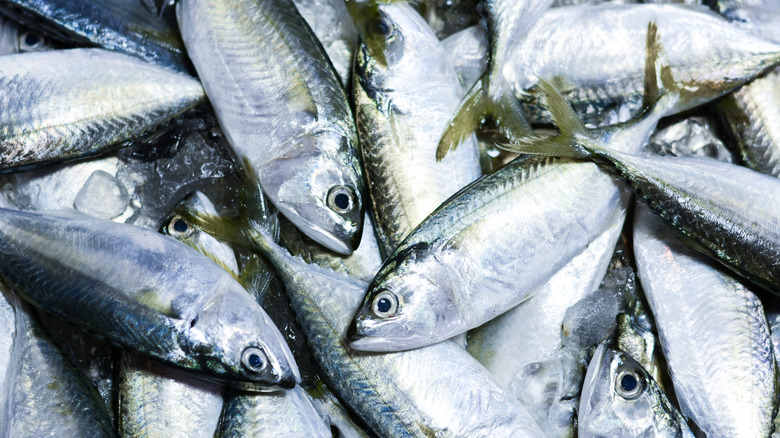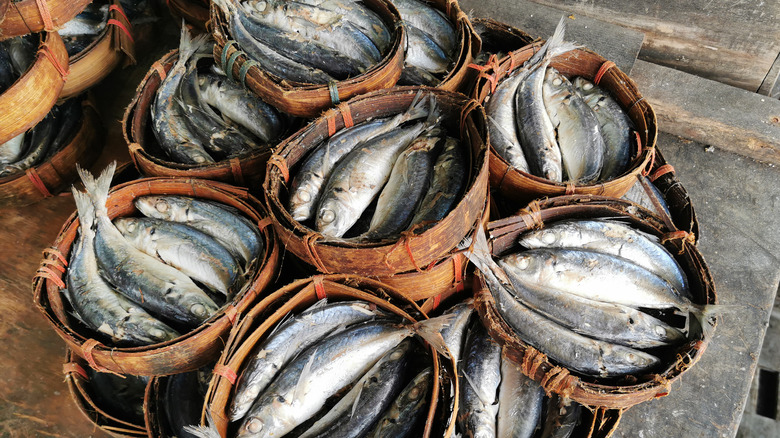Where Did The Phrase Holy Mackerel Come From?
You've probably said it at least once in your life, most likely after something awe-inspiring just happened. After watching a movie with an ending that came out of nowhere, there's a chance your mind would be so blown that you'd say, "holy mackerel, I never saw that plot twist coming!" Or you may ask, "holy mackerel, did you see so-and-so hit that last-second shot?" while discussing your favorite basketball team's unexpected one-point victory that was decided by a buzzer-beating three-pointer. The phrase is also used as a way to convey surprise, e.g. "holy mackerel, I can't believe you're putting your house up for sale!"
So many popular phrases and expressions have interesting origins in one way or another. Some of them may have expected origin stories — "go bananas," for instance, evolved from the similar expression "go ape." Others, like "run of the mill," have more complicated backstories that may not be as straightforward, but still make a lot of sense at the end of the day. So what's the deal with "holy mackerel," and why did people start saying it to express their awe, surprise, or excitement at something?
Holy mackerel is a phrase with multiple Catholicism-related origin stories
Nowadays, not too many people will bat an eyelash whenever someone is perceived to be taking the Lord's name in vain by using the names "God" or "Jesus" when reacting passionately to something. But there was a time when there was a much greater stigma when it came to the use of such language, which is why "oh my God" became "oh my gosh" while Jesus Christ became "gee," "jeez," and "Jiminy Christmas," to name a few. According to The Guardian, that's also how "holy mackerel" most likely came into existence, as it was first used in the early 19th century as a supposedly less blasphemous alternative to "Holy Mary," "holy mother of God," or "holy Madonna" — or "holy Moses," as some have theorized.
In addition to that simpler origin story for "holy mackerel," it's also believed that the phrase is a reference to how Catholics eat fish on Fridays during the Lenten season, similar to how "holy cow" pertains to Hinduism and how "holy smoke(s)" is a nod to the burning of incense. But if that's the case, why was the mackerel chosen over other types of fish? Why "holy mackerel," and not "holy marlin" or "holy mahi-mahi"?
As explained by Phrases, one explanation dates back to the 17th century when mackerel was sold on Sundays, making it a particularly "holy" fish. This is in line with how Catholics were known by the derogatory term "mackerel snatchers" in the 19th century, on account of how mackerel was a hit among budget-conscious Catholics. Either way, the enduring popularity of "holy mackerel" makes it hard to imagine any other fish given such a holy treatment.

